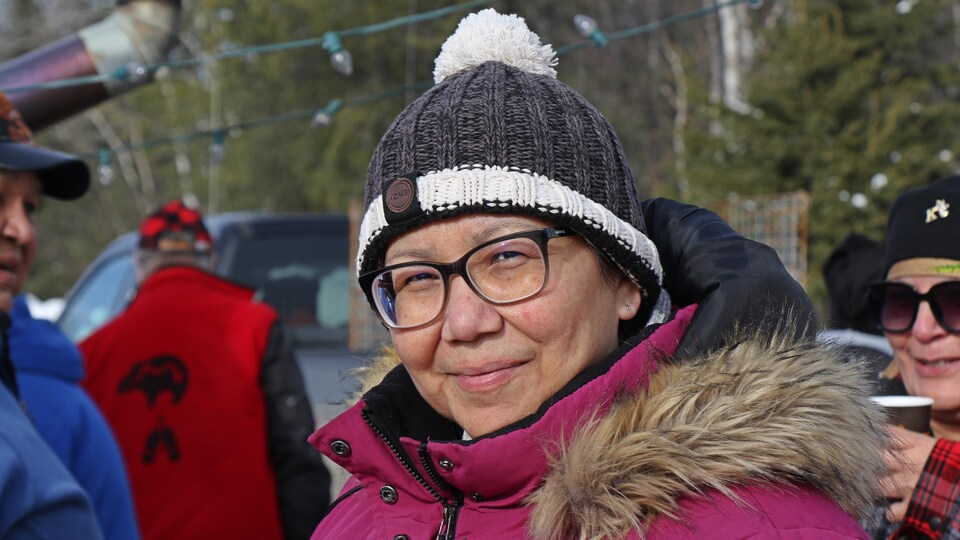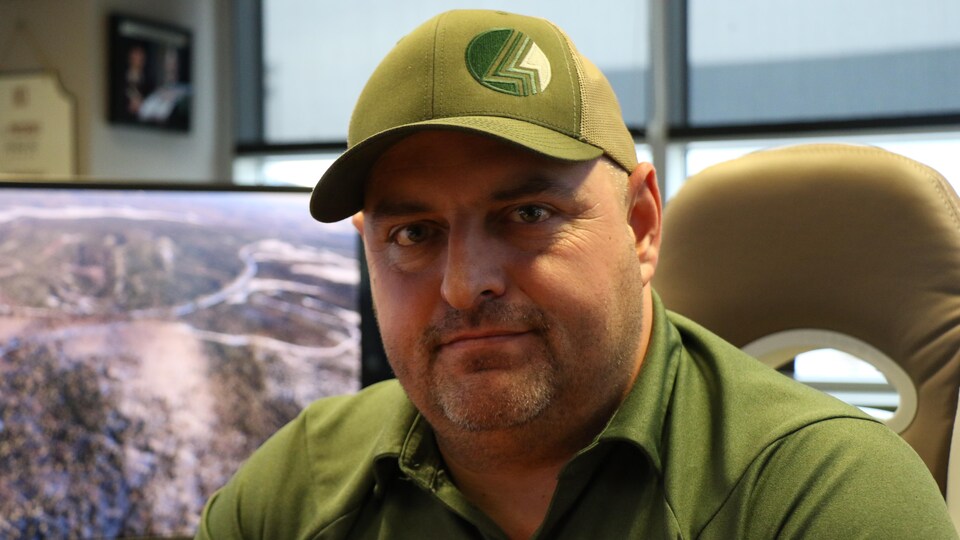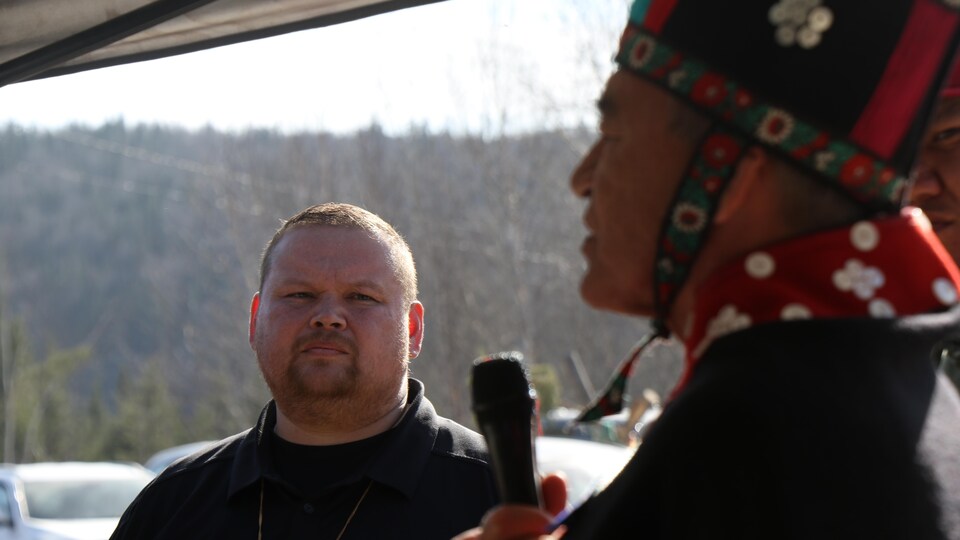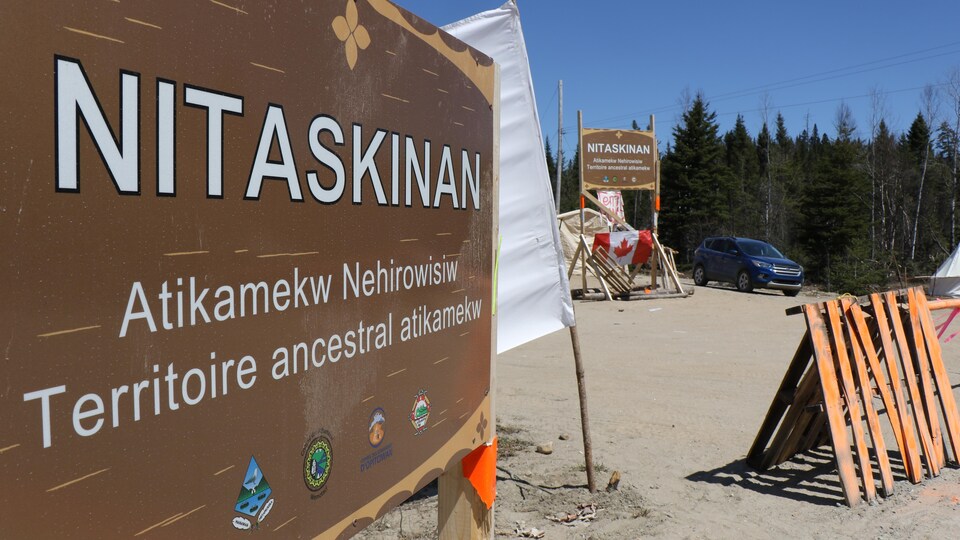The investigation into the disputed cuttings in a maple grove belonging to an Atikamekw family determined that responsibility was shared between the Ministère des Forêts, de la Faune et des Parcs and Scierie St-Michel. But no punishment or compensation is seen.
The investigation also establishes responsibility to a small extent and indirectly of the Territorial Resource Center of the Atikamekw Council of Manawan. Aboriginal Spaces obtained the investigation report which also includes recommendations.
Disappointment of the Atikamekw
Despite consultations and five harmonization meetings since 2016 to establish cutting sectors in the territory of the Dubé family, a road 500 meters long and with an average width of just over 20 meters was completed. 2021. It is therefore approximately 6% of the surface of the maple grove that has been cut down despite the fact that the family opposed it.
This event is the unintentional result of successive failures on the part of the parties involved: the MFFPthe Scierie St-Michel and the CRTis it written in the document.
Henri Dubé’s family is very dispointed survey results, as produced by the Conseil des Atikamekw de Manawan (CDAM).
I’m disgusted. I don’t understand how we got heresaid Annette Dubé, speaking for her family.
The only positive point is they acknowledge they made a mistake, but then? They wash its hand. We see that there is no truth that they neglected ithe continued.
” It seems the ministry and the industrialist are not talking to each other and they are protecting each other. They are great! “
The Dubé family sent a letter to the Minister of Forests, Wildlife and Parks, Pierre Dufour, in which they said they rejected the findings of the investigation and were outraged, even within the framework of an official agreement, disrespect for a person’s rights does not have any liability.
There is no punishment
In February, Henri Dubé’s family accused Scierie St-Michel of cutting and making a path into their sugar bush without permission, which the company denied. The Minister of Forests, Wildlife and Parks has launched an investigation.
The investigation report concluded that Scierie St-Michel, which carried out the cutting, was responsible in particular, even if the family or the Territorial Resource Center of the Atikamekw Council of Manawan (CRT) did not respond to a version altered from on the cutting map with planned paths on it, sent by the forester.
” By changing the location of the roads while knowing the sensitivity and importance of protecting maple grove for the family, Scierie St-Michel inc. compromised the purpose of protection desired by the family. “
According to the document, the company must restart the CRT and ensure that everything is delivered. Lack of return should not be construed as an acceptance of path construction.
The president and director of Scierie St-Michel, Jean-François Champoux, told himself happy with the report.
At each stage, I did my job. I have no fine, because I respect my agreementshe pointed out.
But he still ticks at the mention of shared responsibility.
” I cannot be responsible for the work of the ministry. If it does not comply, it should not be allowed. “
He then defended himself: we warned everyone twice, should we be warned again? At some point, everyone has their own job.
The report mentioned that the sawmill submitted a modified version of the road network and that it is authorized by MFFP there is no detailed validation because it is inside the construction site.
According to the report, the MFFP must ensure that this modified network does not conflict with the settlement measures agreed upon for the site, but he failed to do so.
Result: no penalty or offense can be imposed by the MFFP in this case.
The document is therefore subject to a responsibility primarily shared by MFFP and Scierie, but will not go further. He also mentioned that CRT should have, in part, be vigilant when he notices that the planning of roads on the map sent by the sawmill provides for the construction of the road crossing maple grove.
This action made it possible to alert the family, return to the sawmill and inform the ministry before the damage was done, the report suggests.
This argument did not pass the elected councilor of Manawan and responsible for the file, Glenn Dubé.
Every year, companies and the ministry come back tohe launched, referring to the pressure placed on territorial leaders who refused to cut sectors, but found themselves with similar demands in the following years.
In the case of the sugar bush, the sawmill copied the CRT into an email and considered that the family had already been consulted. The CRT is the only mediatorhe continued. He cannot be held accountable for a bad government decision.
Glenn Dubé then recalled being attacked by Atikamekw false consultations in the long run and, according to him, the orientation of this report confirms their rights is effectively treated as the second line.
” Our rights for them seem optional. They can be flouted, with no consequences. Never consequences for their actions. It happens often. “
Recommendations
Discussions should take place to assess options for mitigating the effects of road construction. Annette Dubé-Vollant like Glenn Dubé hopes the file is not closed for ministry and awaits a meeting with Minister Dufour.
As for the MFFP, it intends, as soon as possible, take steps to prevent this situation from happening again. Areas for improvement and recommendations are included in the review report.
MFFP wants to improve the processes and instructions leading to the issuance of authorizations. The goal is that no harvesting activity is permitted without consulting the CRT and the family concerned when a change requested by a forestry company affects an adjustment proposal that has already been agreed upon. The company also needs to make sure the change does not conflict with what has already been agreed with the family.
The forms of harmonization need to be clearer and the steps clearly written. It will also be necessary to ensure the understanding of all parties.
In part, the report recommends the CRT to better identify the actors concerned, i.e., the heads of the territory and the families, and to quickly verify the information received from a forester, to inform the family and in the ministry as needed.
Finally, the MFFP proposes to review the current collaboration process with Manawan to see if it is still responsive to the parties and change it if necessary.
The Moratorium is still in progress
In addition, last Friday, the Atikamekw Council of Manawan reminded that no forestry equipment or harvester has access to the cross road that starts at kilometer 60 and enters Nitaskinan in the direction of La Tuque, a road that is regularly traversed. No exceptions will be made until further notice.
A few months ago, a moratorium was imposed on logging in the territory of Manawan’s ancestors. In addition, a roadblock was held day and night at km 60 for three months. It was built following cuttings in the Dubé family’s sugar bush.
The leaders of the Manawan territory, from the perspective of respect for their rights and more responsible management of forests, demand a more balanced relationship with the forest industry and a real and concrete application of the obligations and implications related. in the First Country. of the Sustainable Forest Development Act. Satisfactory progress pending in discussions with the Quebec Government, mobilization continuessaid a press release from the council.
This reminder comes as the cutting season is about to resume and Quebec is in talks with Manawan and the Atikamekw Nation Council as part of a working committee. The latter seeks to find a common basis aimed at respecting the Atikamekw way of life, known as nehirowisiw, in land use planning and management. It was built in February and is nearing completion of its work.
Jean-François Champoux has indicated that his forest operations will begin on June 6, but he will do everything not to force the 60-kilometer stretch, where the dam is located, and to ensure that discussions between the ministry continue, the CDAM and the DACs.
Source: Radio-Canada



